regenTM Polyester
regen: Initiating a New journey to Reduce Carbon Footprint


With strengthened global unity and responsibility in response to climate change, the expansion of carbon reduction regulations centered around the EU and individual countries is interconnected with our product sustainability initiatives.
Commencing in October 2023, the EU Carbon Border Adjustment Policy (Carbon Tax), applied on a trial basis, imposes taxes on the carbon emissions embedded in all products imported into the EU. This regulation aims to minimize the social costs of climate change. Furthermore, the heightened awareness of sustainability among nations, corporations, and individuals necessitates enhanced transparency in the handling of both ecological and human rights aspects deriving from raw materials.
Taking responsibility for our society’s sustainable future, Hyosung TNC has assumed a leading position in the development of certified eco-friendly products to help reduce harmful carbon emissions among various industries.
To support our position, we have launched a rebranding initiative to enhance the market presence of our existing ‘regen’ recycled product brand.
Through this rebranding program, we are broadening the scope of our sustainable product line beyond recycled products, which contribute towards carbon reduction to include products made from renewable resources such as bio-based and bio-degradable materials.
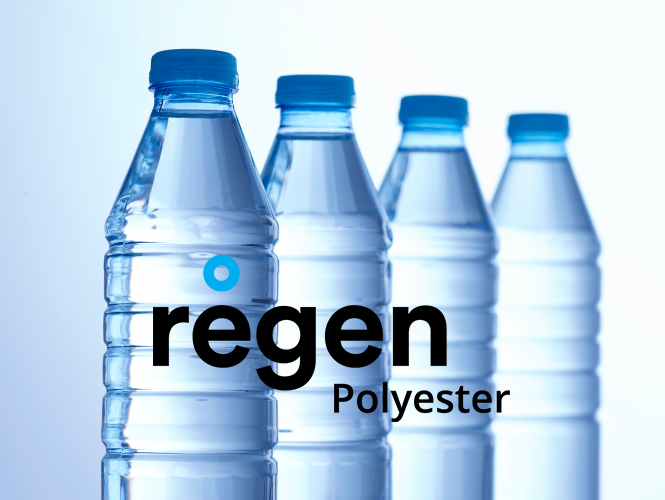

Transforming discarded PET bottles into High-performance recycled Polyester
Following the success of our recycled nylon made from discarded fishing nets, Hyosung TNC introduced yet another recycled fiber. In 2008, we pioneered the development of regen Polyester, 100% post-consumer recycled polyester made from collected PET bottles. As a result, regen Polyester became the world's first to achieve the GRS (Global Recycled Standard) certification, solidifying our leadership in sustainable innovation.
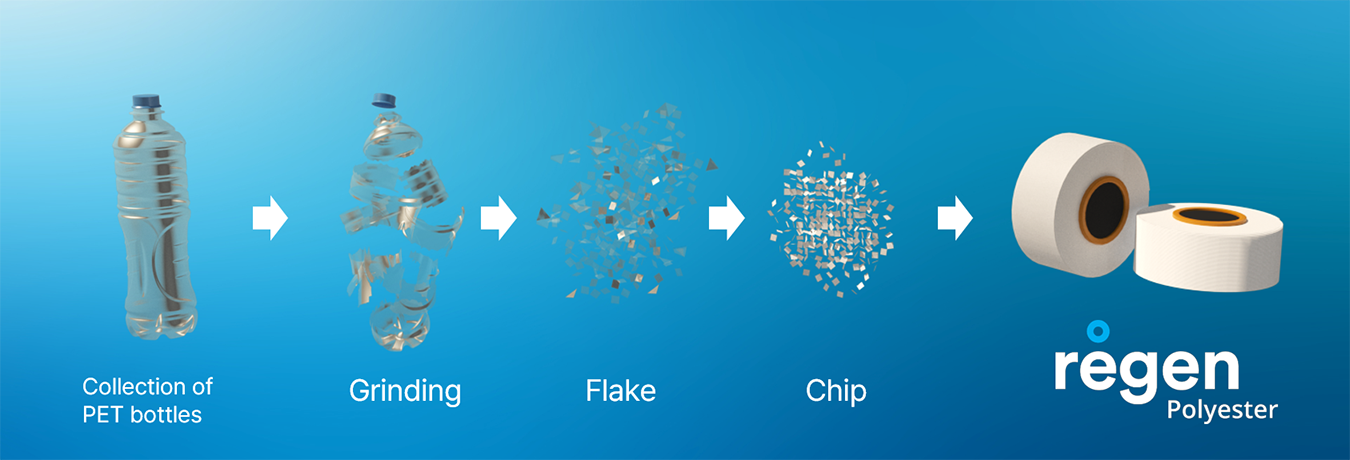
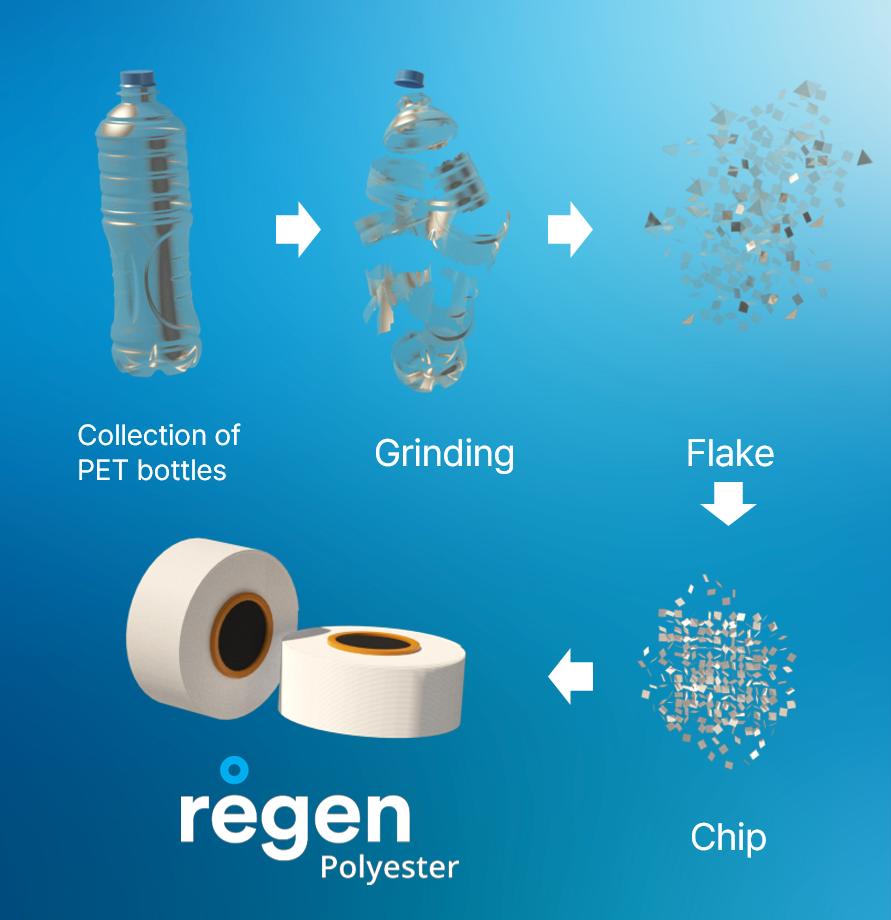
Continuous Endeavors: Preparing For the Future
Hyosung TNC is committed to relentless research and development for the sake of sustainable living and the preservation of our planet's environment. As part of this endeavor, we have created regen Ocean polyester to safeguard marine environments from the plastic pollution that constitutes more than 80% of ocean waste*. (*site source) Moreover, we are currently directing our efforts towards developing low-carbon products to further enhance sustainability and circularity.
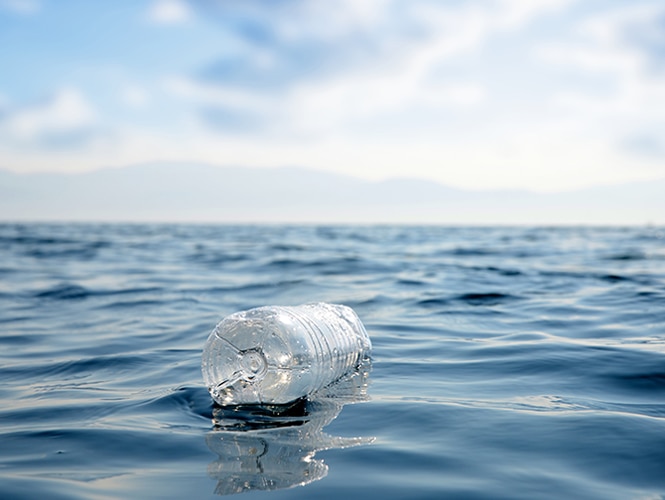

Sustainable Solutions
: regen Polyester’s Unique Value


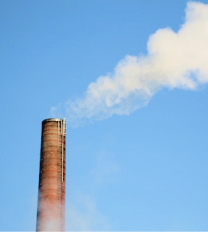

1. Reduction in resource consumption and carbon emissions
regen Polyester has been subjected to third-party verification through a Life Cycle Assessment (LCA) to measure its actual carbon reduction impact. The production of one ton of regen Polyester results in approximately 67% carbon reduction and roughly 80% decrease in the use of fossil oils compared to manufacture of conventional Polyester.
2. GRS Certification (Global Recycled Standard)
The transparency and traceability of regen Polyester's raw materials, production, and sales structure are validated through third-party certification by the Textile Exchange's GRS Certification.




3. Elevated Innovation: Functional regen Polyester
Hyosung TNC is leading the way in introducing cutting-edge products through the development of a wide range of functional 100% recycled Polyester fibers. Our offerings, such as regen Askin (cool touch recycled polyester) and regen Cotna (cotton-like recycled polyester), not only promote sustainability, but also provide exceptional performance, ushering in a new realm of capabilities. Additionally, we are continuously involved in ongoing research to create diverse functional recycled polyester, aiming to achieve innovation and sustainability hand in hand.
4. R-SCAN: Hyosung TNC’s Unique Traceability Certification
Hyosung TNC operates a proprietary recycling traceability program called R-Scan, ensuring even greater reliability and transparency in the use of regen Polyester. This program verifies whether regen Polyester has been incorporated within final fabrics and end-use garments by including traceable materials into the yarn.

